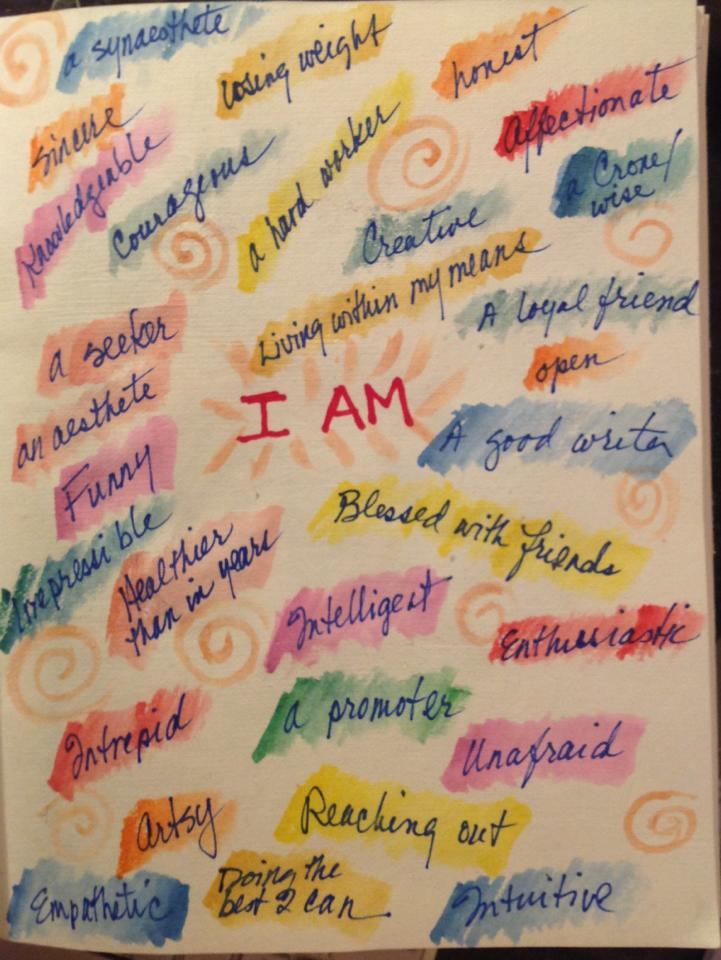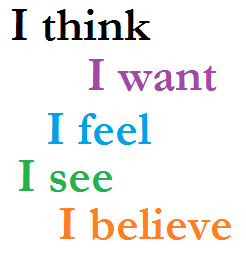I Statements are a powerful tool in communication. They can be used to make someone feel more validated or listened to, and they can also be used as therapeutic tools in the right context. But what are I statements? How do you use them effectively? And when should you avoid using them altogether? We will explore these questions below!
Contents
What Are ”I” statements?

I statements, also known as “I messages”, are a type of communication that focuses on the speaker’s thoughts and feelings. They use the pronouns “I” and “me” to express these thoughts and feelings. It can help to make the speaker feel more validated and heard. I statements can be used in any context where communication is taking place, but they are particularly helpful in personal relationships.
What Do “I” statements Imply?
My statements imply that the speaker is being open and honest about their feelings, which can have several positive effects. For example:
- It shows the other person that they are important to you
- You feel like your opinions matter
- You want what’s best for both parties involved
Who Use “I” Statements?
Anyone who wants to communicate honestly and openly about their feelings can use I statements. This includes:
- Friends
- Parents and children (in a healthy relationship)
- Couples in an intimate partnership
- Therapists, doctors, or other mental health professionals working with clients
How Do You Use “I” Statements?
I statements can help people feel heard and understood by the speaker when used correctly. It’s important to make sure you understand what a person is trying to communicate before using an I statement with them, though!
Case Study
If someone says “You never listen to me”, it’s important not to assume that they are asking for you to listen to them. They may just want validation, acknowledgment, or understanding.
If someone is communicating their feelings through I statements, it can be helpful to respond with your thoughts and feelings about what they have said. For example: “I feel unheard when you raise your voice at me,” or “I understand that you’re feeling frustrated.”
Examples Of “I” Messages
Below are a few examples of “I” messages that can be used in various contexts:
In a Personal Relationship
- “I feel upset when I see you spending time with your friends instead of me.”
- “When you don’t listen to what I’m saying, it makes me feel like my feelings don’t matter.”
In A Professional Setting
- “I think we should try something new for our next session. What do you think?” “I’m feeling overwhelmed by this project. Can we talk about it?”
- “I feel anxious about our meeting because I’m afraid you’ll be angry with me.”
Role Of “I” Statements In Communication

My statements can play an important role in communication by helping to create a more open and honest exchange of feelings. They can help both parties feel validated and heard, which can strengthen the relationship.
My statements can be especially useful in personal relationships between friends and family members. They are also extremely helpful tools for therapists, doctors, or other mental health professionals working with clients on improving communication skills.
“I” Statements In Giving A Word
When you give someone a word, it’s important to use an I statement to communicate your thoughts and feelings about that word. For example:
- “I feel uncomfortable when you use that word.”
- “That word makes me feel like you’re not respecting my feelings.”
- “I don’t like hearing that word, can you please choose a different one?”
“I” Statements In Making An Announcement
Using I statements can also be helpful when making announcements to someone. For example:
“I’d like you to stop what you’re doing so we can talk about this.” “I’m not sure how you feel about that, but I want to make sure it’s okay with everyone before continuing the project.”
“I” Statements In Making An Apology
I statements can also be used when apologizing to someone. For example:
“I’m sorry that I hurt your feelings.”
“I didn’t mean to snap at you, I was just really frustrated.”
Where Not To Use “I” Statements?
There are a few times when it might be best to avoid using I statements.
If someone is communicating in an aggressive or attacking way, using I statements may not be the most effective response. In this situation, it might be better to use “you” statements instead.
- For example: “You’re making me so angry right now that I can’t think straight.”
I statements can also be ineffective if the speaker is not communicating their thoughts and feelings. For example, if someone says “I need you to do this for me,” they are not using I statements correctly. In this case, it would be better to use a “you” statement.
In Addition
There are a few contexts where it’s not appropriate to use I statements. These include:
- Accusing someone of doing something wrong
- Demanding something from someone
- Giving criticism or feedback
In these cases, it’s generally better to use “you” statements.
For example: “You never listen to me,” or “I need you to stop what you’re doing and talk to me.”
Role Of “I” Statements In Therapy
I statements are often used in therapy as a therapeutic tool to help people communicate more honestly and openly. They can play a major role in helping the speaker feel validated, understood, and listened to by their therapist or doctor.
Therapists often ask their clients to use I statements when communicating about difficult or sensitive topics. This can help the client feel more comfortable and safe discussing these issues.
NOTE: I statements can also be harmful if the speaker is not ready to own their feelings or share them with the listener. This makes it especially important for therapists, doctors, and other mental health professionals working with clients on developing communication skills to make sure they understand what a person means before using an I statement with them.
How Can “I” Statements Be Used As Therapeutic Tools?
I statements can be used therapeutically in many situations, but it’s important to keep in mind that they are not a “miracle cure” for all problems.
Especially, if someone’s feelings are being affected by something you’ve said or done, using I statements can help them feel heard and validated while working toward improving the relationship.
For example, if someone says “I feel hurt when you don’t include me in your plans,” you might say “I’m sorry that I didn’t think to include you. I’ll make sure to do that next time.”
NOTE: If someone is experiencing anxiety or depression due to traumatic events taking place outside of their relationship with you, using I statements will not be helpful. In these cases, what is needed for therapeutic progress to take place is a focus on the outside events that have caused this anxiety or depression in the first place.
Psychotherapists On “I” Statements
Most psychotherapists feel that I statements are a valuable tool for helping people communicate more effectively. They can help the speaker to feel heard and understood and can play a major role in building trust in the therapeutic relationship.
However, it is important to remember that I statements should not be used blindly, and should always be tailored to fit the specific situation. If they are not used correctly, they can do more harm than good.
“I” Statements In Personal Relationships v/s Professional Relationships

In personal relationships, it’s important to understand the other person and know when they are ready to hear what you have to say. Using I statements can help people feel safe enough in their relationship with you that they will be open and honest about how they’re feeling.
The situation is different for professionals working with clients who might not always be ready to own their feelings or share them. When working with someone in a professional capacity, you should always work to maintain a clear boundary between yourself and the client so that they do not become overly dependent on your relationship.
Therefore, therapists and other mental health professionals need to have an understanding of when I statements can be appropriate as well as when they should refrain from using them.
Conclusion
I statements are a valuable tool for communication that can help people feel heard and understood. They can be used to make someone feel more validated or listened to, and they can also be used as therapeutic tools for improving relationships. However, they should be used with caution, and only in situations where they are likely to be effective. If you’re not sure whether or not I statements are the right tool for you, it’s always best to ask a professional.
If you are looking for affordable Online Counseling MantraCare can help: Book a trial therapy session


